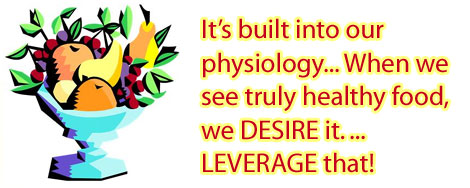
For many people, a change in diet is largely a mental issue. You *decide* that you're going to do something different, and then commit to it. You may shop a little differently than before, but quite often that is the extent of any action taken (other than preparing and eating the new foods rather than the old ones).For many, the commitment aspect is the trickiest part. ?Books could be written on this subject alone (and we're sure we've discussed this at length here on the blog).
Today we want to share a super-easy tip to help with the commitment side of this: Keep your fruits and vegetables VISIBLE.
Jim here... Whether you've had the pleasure of knowing Wendi for decades as I have, or have only recently met her, I think you'll be absolutely stunned by this inspirational video. It demonstrates, in undeniable pictures, the power of raw and living foods -- and not only the physical healing that takes place when you adopt this lifestyle, but also the height to which this lifestyle helps lift your spirit.
Read more: Wendi Dee's Raw Food Weight Loss Transformation Video
Hi there, lovely Pure Jeevan family members!
It's so sweet that many of you are concerned about us, wondering where we are and what we are doing since the blog has been quiet for quite some time. We feel very loved! *blows kisses to everyone*
Well, our trip to Portland, Oregon, went well. We bought the fixer-upper home that will eventually house Pure Jeevan, and did some preliminary work on it (it's a *true* fixer-upper and is going to require *a lot* of work and investment). A few times during our stay in the new home, Jim and I both looked at each other, wild-eyed, wondering what we had done. Following one's intuition can be a bit scary at times, but we've learned over the years that things always work out for the best and that these sometimes scary, unknown times are what help us grow and learn in ways we had never imagined.
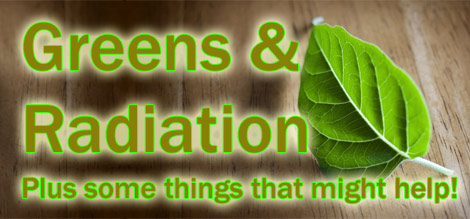
In writing and researching our previous two posts, we came across a number of articles mentioning the benefits of chlorophyll for those who have been exposed to radiation. Nothing seemed to go so far as to call chlorophyll a cure-all. But, many sources cited clear benefits -- and it's great to read about potential preventative measures and treatments available through natural means. For example, the best source we found mentioned some specific studies:
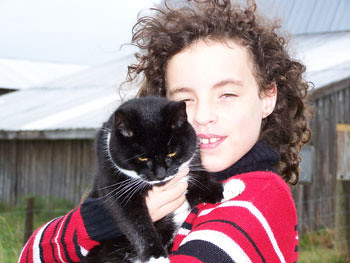
You rarely hear us talk about our daughter here on the blog. Some of you have noticed and asked questions about her through email. I'd like to tell you why we don't write about her very much, because there's something to be learned from it.
First, I usually don't like to write about people unless I get their permission. This is especially true when my daughter is concerned. I respect her privacy if she chooses for me to not share things about her life. Years ago when I knew I wanted to create the Pure Jeevan site, I talked with Jim and our daughter about it. I said it was something I felt drawn to do, that I felt it could help a lot of people, but I wanted it to be a family site if it's something they were interested in doing along with me. Jim agreed to help me at the time, but didn't fully embrace Pure Jeevan himself (now, however, he has become a very active part of this site and all of our projects). Our daughter, however, said from the very beginning that she didn't want any part of it.
I wanted it to be a family site if it's something they were interested in doing along with me. Jim agreed to help me at the time, but didn't fully embrace Pure Jeevan himself (now, however, he has become a very active part of this site and all of our projects). Our daughter, however, said from the very beginning that she didn't want any part of it.

Jim here with a weird little story for today... I was at a business seminar early this morning and someone I know came up behind me at the buffet and said, "I'm getting in line behind you to see what you eat. You've lost weight and I want to lose weight, too."
"Well, it's no secret," I replied. "Just chow down on all of this great fruit they have." (I'd already piled my plate high with honeydew, cantaloupe, pineapple, and strawberries.)

An online friend of mine, Kevin Gianni (see previous blog entry introducing him), has been producing a terrific series of videos and blog posts. At the end of each post, he asks questions of his readers. In his recent post, he asked his readers:
What struggles have you been through

The new Vitamix container arrived within two days (they knew we were hard core Vitamix users and put the container in the mail the day we ordered it to replace the broken one). So, what was the first thing we made in our shiny new container (after washing it, of course)? A DELICIOUS coconut smoothie!


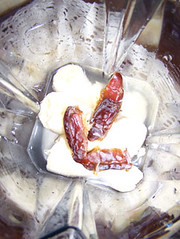
Mnemonics for the "Clean 15" -- Or, "Conventional" Produce That Tests Lowest for Residual Pesticides
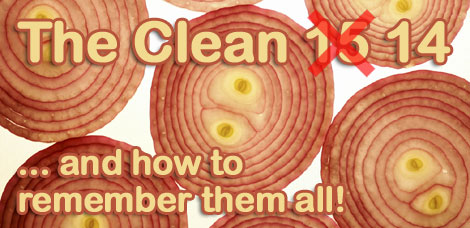
Following up on yesterday's post, today we're going to take a look at the "Clean 15." These are the 15 produce items that, according to research done by the Environmental Working Group, contain the least amount of residual pesticides (even though they're still grown using pesticides).
What this boils down to is: IF you're going to eat conventionally grown produce, these items will harm you much less than those we covered yesterday. So, here's the list, and then we'll try to come up with a sentence to help you (and us) remember everything:

To help keep all of you inspired, we ve asked some
remarkable individuals to share their raw food stories with you. Enjoy!
Correction: I said "Lenuria" a number of times in this video, but it's actually Lunaria! In any case, we wanted to share some additional description for this plant. Here's a quick paragraph from Wikipedia:
Lunaria is a genus of flowering plants in the family Brassicaceae, native to central and southern Europe. It includes two species, Perennial honesty and Annual honesty. They are widely grown as ornamental plants in gardens, and have become naturalised in many temperate areas away from their native habitat. In the language of flowers, it means Sincerity and Forgetfulness. ...The common name "Honesty" arose in the 16th century, and it may be due to the translucent seed-pods which are like flattened pea-pods and borne on the plant through winter. In South-East Asia, it is called the "Money Plant," and in the United States as "Silver dollars," because its seed pods have the appearance of silver coins.
